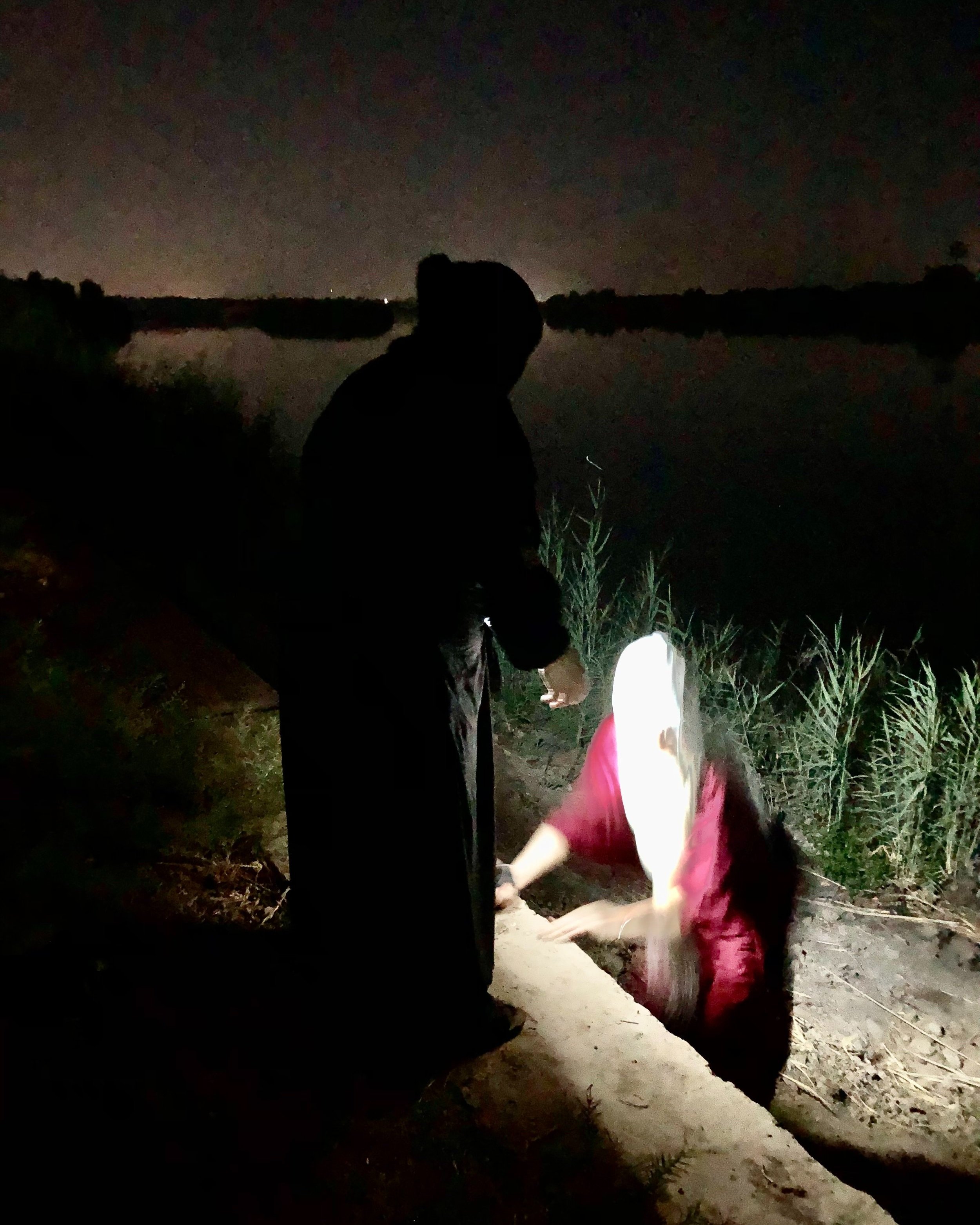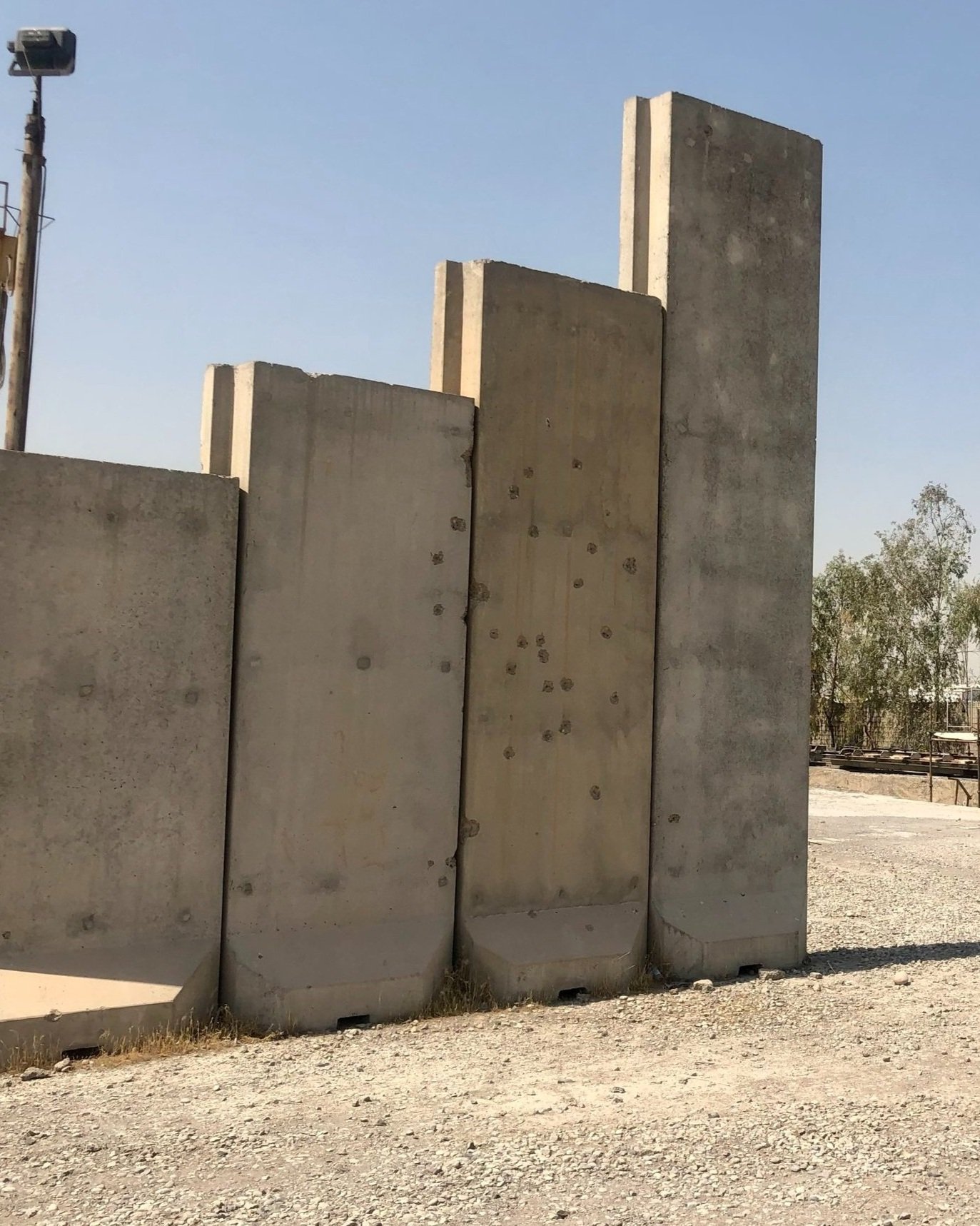The Parts Per Million Project
Dr. Rubaii leads an interdisciplinary team of researchers concerned about multi-generational health effects of environmental exposures from the war industry, including exposure to US military burn pits, mineral mines, and cement factories. Through ethnographic interviews, participant observation, mapping, and environmental sampling, Dr. Rubaii is studying how the epidemic of birth anomalies in Fallujah is understood as a symbol of inter-generational violence — and how biomedical effects of the environment are understood by health researchers seeking to mitigate public health harms. Related scholarship: “Spatial Distribution of Heavy Metal Contamination in Soils of Fallujah, Iraq,” Exposure and Health; “Birth Defects and the Toxic Legacy of War in Iraq,” Middle East Report.
Displacement and Affect
Dr. Rubaii’s research on war transhumance —how internally displaced farmers travel to and from their land during episodes of military violence— depicts Anbari farmers who outlast conditions of military violence to repair their land, plants, and waterways. Based on long-term fieldwork between 2014 and 2023, this project identifies how the US invasion transformed Iraq’s environment and how people resist alienation from their land. Related scholarship: “This is why we protect the rivers, This is how we protect the rivers.” Critical Times; “Tripartheid: How Sectarianism Became Internal to Being in Anbar, Iraq,” Political and Legal Anthropology Review; “Note the Ghosts: Among the More-than-Living in Iraq,” War-torn Ecologies, An-Archic Fragments.
Cement, Concrete, and the Carceral
Dr. Rubaii’s research on the cement and concrete industry in Iraq examines how militarism hides itself in construction, producing lasting conditions of coercion in the name of post-war recovery. Exploring sites of cement mining, concrete production, batching plants, concrete “graveyards,” and walled checkpoints, Dr. Rubaii investigates the militarized logics that propel the industry, as well as the impact of the industry on local ecologies. Related scholarship: “‘Concrete Soldiers’: T-walls and Coercive Landscaping in Iraq,” International Journal of Middle East Studies.


